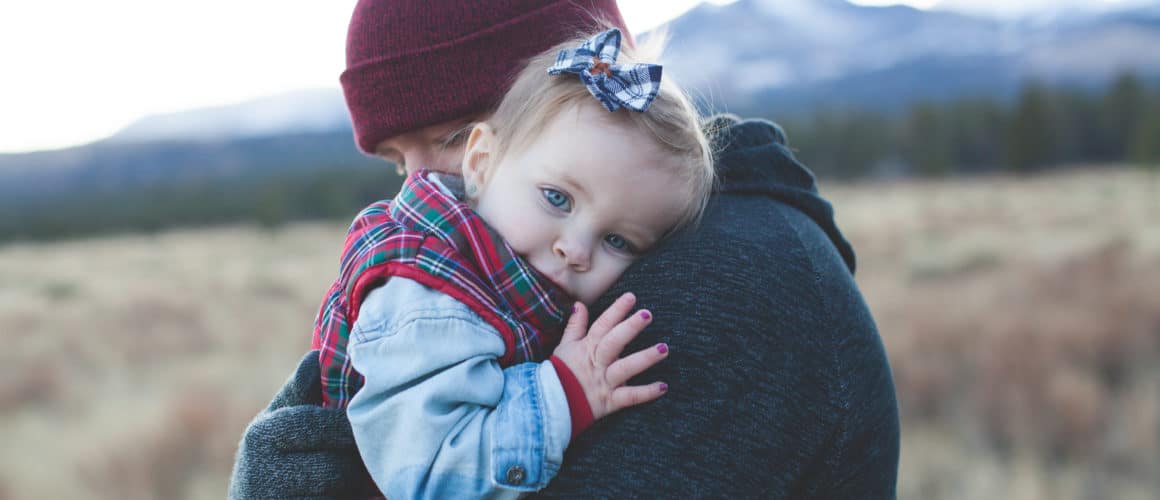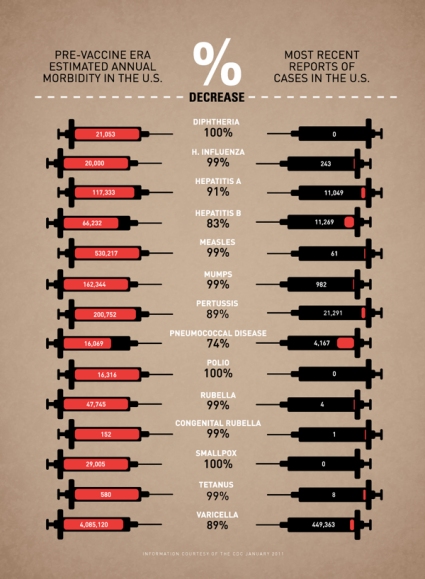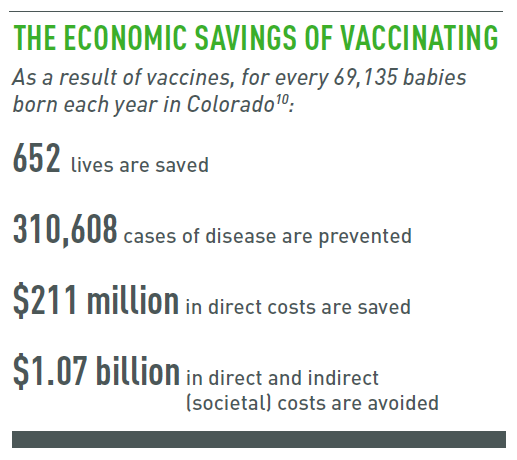While we appreciate our loved ones all year round, Thanksgiving provides a special occasion to reflect on who and what we’re most thankful for. This and every year, vaccines provide something to be thankful for—and here’s why:
1. Because vaccines allow us to protect our loved ones through prevention.
We do everything in our power to protect the little ones in our lives—from researching the safest car seats, to choosing healthy foods, to kissing boo-boos both emotional and physical. Our primary goal is to keep children safe, healthy and happy. We don’t expect the worst to happen. But we buy and use the car seat, we arm kiddos with helmets, and we learn the Heimlich and CPR. Just in case. We prevent what we can because we never know what might happen. And by getting kids vaccinated, we’re doing just that. By keeping up to date with the Centers for Disease Control and Prevention (CDC) recommended immunization schedule, we’re giving our children the best shot at preventing disease. Even if we can’t possibly imagine that they’ll contract an illness, we prepare for the worst by preventing what we can in the best way we can.
2. Because vaccines protect our communities’ most vulnerable individuals through Community Immunity.
Mom, dad, friend, neighbor, colleague, schoolmate—even the grocery store checker. These are the faces of our communities. When we choose to vaccinate, we protect not only ourselves and our children, but everyone around us. Some individuals in our community can’t get vaccinated against certain diseases, and are therefore more vulnerable to these diseases and their complications.
Pregnant women, babies and young children, the immunocompromised and the elderly—even those with certain allergies—rely on everyone else in their community who can get vaccinated to do so. When enough people are protected from a disease, it’s hard for that disease to spread throughout a community and reach these vulnerable populations. One of your community members—your neighbor, your friend’s son, your bank teller, your mail carrier—might not be able to be vaccinated. It’s up to all of us to protect each other. We can give thanks for our communities by getting vaccinated and making sure everyone is protected. We can support our herd and our community.
3. Because vaccines have helped eliminate deadly disease worldwide.
We live in an amazing time in history. For the first time, we have the ability to prevent once-deadly diseases that ravaged—even wiped out—communities worldwide. That’s why vaccines are considered one of the greatest public health achievements of the 20th century. For instance, the last case of smallpox, a disease that killed approximately 300 million people worldwide during the 20th century, was last seen in 1979—making it the first disease to be fully eliminated through global vaccination and other public health efforts.
And polio? Most of us have never seen a case of polio. But in the 1940s and 1950s, polio outbreaks were extremely common and affected more than 35,000 people—just in the U.S.—each year. Because the disease is highly infectious and can lead to paralysis, parents across the country were scared to let their children out of the house for fear that they might catch the potentially deadly disease. In the U.S., the fear of polio all but disappeared when the disease did. There hasn’t been a case of polio in the U.S. since 1979, so we don’t see first-hand how devastating the disease can be. Thanks to the polio vaccine and to massive global vaccination campaigns, the U.S. is polio-free and we are tantalizingly close to eliminating polio worldwide. Polio is only a plane ride away, and vaccination ensures that our children and future generations can prevent polio from returning. Last year, there were only 37 cases worldwide in just 3 countries. Thanks to coordinated global vaccination efforts, polio cases have decreased by over 99 percent.
This infographic shows just how substantial the impact of vaccines has been for other diseases:
Credit: Leon Farrant
4. Because vaccines save lives—and money.
Vaccines are credited with preventing 2 to 3 million deaths worldwide each year—and that’s just from diphtheria, tetanus, whooping cough (pertussis), and measles. According to the World Health Organization, though measles is still responsible for taking the lives of over 100,000 children globally each year, the measles vaccine has saved 17.1 million lives since the year 2000.
Vaccine-preventable diseases and their complications pose a cost not only to human life, but also to economic resources. The individual and societal cost of a single case of measles (including doctors’ visits, hospitalization, time taken off work, and public health interventions) is a whopping $83,000. But the cost of vaccination, though initially high, is far less than the cost of treatment and prevention. For instance, the eradication campaign for smallpox cost US $100 million. But since smallpox was eradicated we’ve saved US $1.3 billion in smallpox treatment and prevention costs each year.
Even though the economic cost of vaccination outweighs the benefit economically-speaking, the benefit of saving a person—a child—the pain that comes with contracting a vaccine-preventable disease is invaluable.
Source: The State of the State’s Immunizations Report
Thanksgiving is all about spending quality time with our friends and family—the people who mean the most to us. These people are our priority, and vaccines can help to protect them from contracting nasty (and potentially life-threatening) illnesses. Vaccines help to protect our global community–others’ loved ones—too. We give thanks for any opportunity we have to prevent harm to those we hold dear, and vaccination is at the top of that list.
For more information about vaccines, visit www.immunizeforgood.com.



